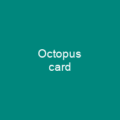Understanding Payments: The Currency of Commerce
What is a payment? It’s like a handshake in business—a mutual agreement where one party gives something valuable to another, whether it’s goods or services. But have you ever stopped to think about the complexity behind this simple act? A payment isn’t just money changing hands; it’s a promise fulfilled and a transaction completed.
The Players: Payers and Payees
When we talk about payments, two key players come into focus. The payer is like the giver in a gift exchange, while the payee is the receiver. But what happens when one party doesn’t want to accept the payment? Can you imagine a world where every transaction was met with refusal?
Payment Methods: A Diverse Landscape
How do payments happen? They can be as old-school as using cash or as modern as mobile payments. Whether it’s transferring stock, bartering goods, settling debts, or even offering discounts, the methods are varied and evolving.
The Evolution of Payments: From Pacification to Progress
The term ‘pay’ comes from Latin, meaning ‘to pacify.’ Isn’t that interesting? It’s like saying a payment is a way to calm down an argument or resolve a dispute. Over time, the concept expanded beyond just settling debts and became more about fulfilling obligations.
Exchanging vs. Provisioning: Two Sides of the Same Coin
Exchanging involves using money (cash, cheque, mobile payment, bank transfers), while provisioning means transferring money from one account to another. Think of it like trading goods at a market versus sending an email with a digital transfer. Both are valid, but they operate in different realms.
How do credit cards and mobile payments fit into this? Credit card, debit card, cheque, money transfers, and recurring cash disbursements are all part of the electronic payment family. These technologies include magnetic stripe cards, smartcards, contactless cards, and even mobile payments like Google Pay or Apple Pay.
Progress payments allow you to pay in stages for construction or asset acquisition. Imagine building a house; you wouldn’t want to pay the entire amount upfront. Instead, you make payments as work progresses, ensuring both parties are satisfied along the way.
A down payment is an initial partial payment for expensive items or services. It’s like planting a seed; it’s the first step that sets everything in motion. Without this initial investment, many transactions might not even start.
In pre-paid card transactions, there are multiple parties involved: purchaser, seller, issuer of currency, and acquiring bank. It’s like a relay race where each player has a role to play. Each one contributes to the transaction, making it seamless for everyone involved.
Names like Diners Club, Visa, American Express, and MasterCard are household names in the payment world. They’re like the big players on a sports field, each with their unique style but all contributing to the game. These providers make sure that no matter where you travel, your card is accepted.
Debit cards are the fastest-growing payment technology in the US, expected to double by 2011. It’s like a new star rising on the horizon. These cards offer convenience and security, making them a popular choice among consumers.
Cheques used to account for 25% of US transactions in 2001 but their share is falling worldwide. It’s like an old friend who isn’t as popular anymore. While cheques are still around, they’re being replaced by more modern and efficient methods.
The timing of payment has legal implications in some situations. For instance, in the U.S., cash payments are considered to occur at the time of payment, while credit card payments take effect at the point of sale. This can have significant consequences for both parties involved.
Payments are the lifeblood of commerce; they keep the economy flowing and businesses thriving. Just like a heartbeat, payments ensure that every transaction is completed smoothly. Whether it’s a small purchase or a large investment, payments make everything possible.

In conclusion, payments are not just about money; they’re about trust, obligation, and the seamless exchange of value. As technology continues to evolve, so too will our methods of payment, making transactions faster, more secure, and more convenient than ever before.
You want to know more about Payment?
This page is based on the article Payment published in Wikipedia (retrieved on February 3, 2025) and was automatically summarized using artificial intelligence.





